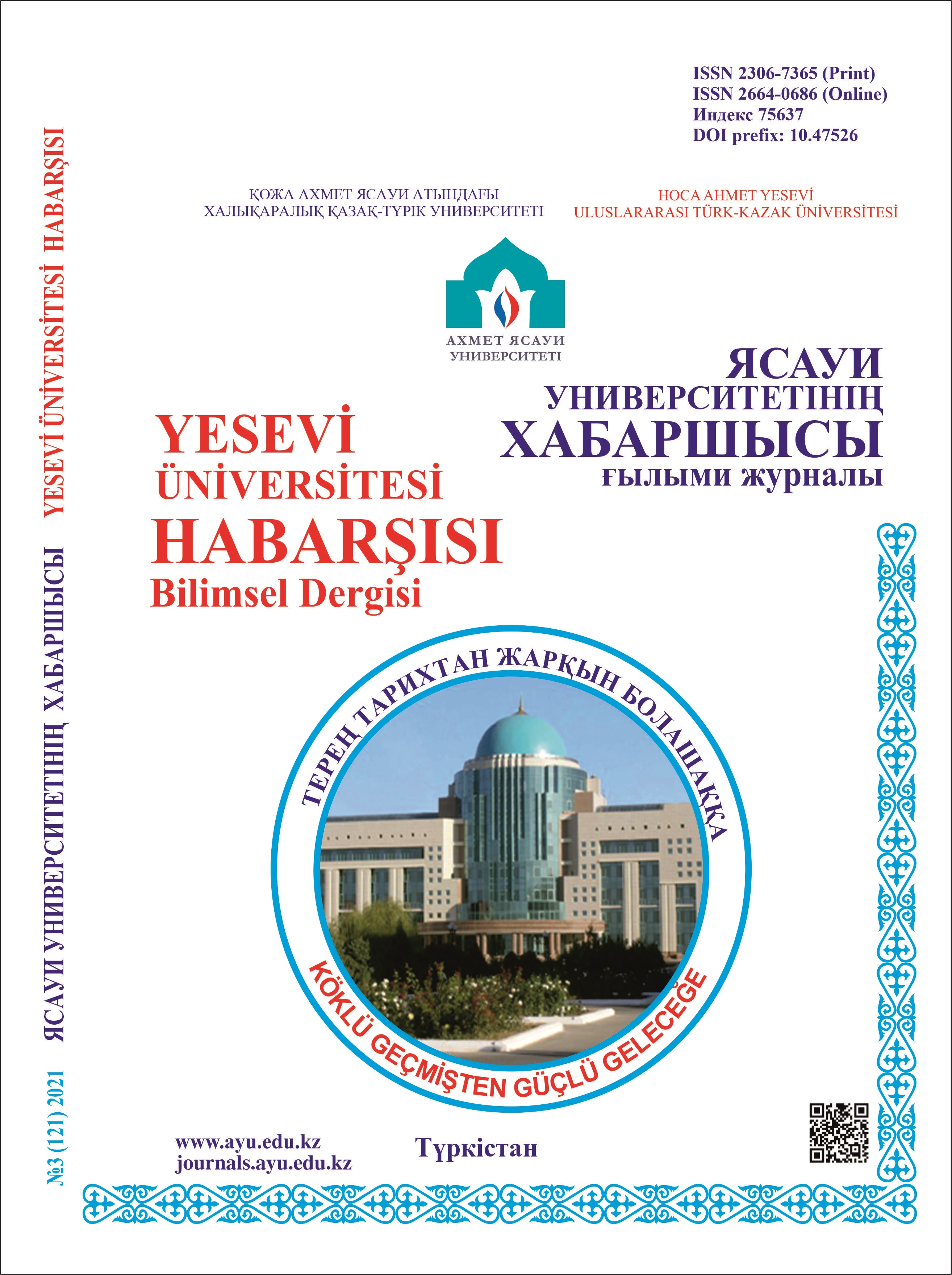Gamification in English Lessons at Primary School: Effectiveness and Application Possibilities
Keywords:
gamification, English language lesson, primary school, efficiency, possibilities, students' satisfaction, motivation.Abstract
Gamification today is one of the most important modern trends in educational technologies. The study examined the effectiveness of using gamification in primary English lessons in high school and the possibilities of using digital platforms based on gamification to increase students' motivation and interest in learning a foreign language. The results of a gamification-based lesson on the digital platforms Kahoot+ premium and Quizizz are compared, and the effects of previous studies are compared.
The experimental part of our research work was carried out with the participation of primary school teachers and primary school students in the city of Shymkent and the Turkestan region. The sample of this study, which was conducted in experimental and control groups, included 30 primary school students. And its positive results are shown in tables and pictures.
The main purpose of the study was to test the hypothesis that adding gamification elements to English language lessons can improve student engagement, motivation and overall learning outcomes. The research methods used in this study include a combination of quantitative and qualitative approaches that involve data collection through surveys, observations and evaluations. Based on the data obtained in the “Analysis and Results” section, theoretical analyzes were performed, supplemented by tables, diagrams and statistical indicators. The final section presents a conclusion based on the research findings, highlighting the potential benefits of introducing gamification into English language teaching in primary schools. The article concludes with a discussion of the research findings and suggestions for future research directions.
References
ПАЙДАЛАНЫЛҒАН ӘДЕБИЕТТЕР ТІЗІМІ / REFERENCES
Biçen H. and Kocakoyun S, Perceptions of students for gamification approach: kahoot as a case study // International Journal of Emerging Technologies in Learning (Ijet). 2018. – Vol. 13. – №02. – P. 72–93. https://doi.org/10.3991/ijet.v13i02.7467
Zhang S., Hasim Z. Gamification in efl/esl instruction: a systematic review of empirical research // Frontiers in Psychology. – 2023. – Vol. 13. https://doi.org/10.3389/fpsyg.2022.1030790
Callebaut W. Piaget among the Evolutionary Naturalists // Philosophica. – 1994. – Issue 54. – Р. 111–140.
Inayati N., Waloyo A. The influence of quizziz-online gamification on learning engagement and outcomes in online English language teaching // Journal on English as a Foreign Language. – 2022. – Vol. 12. – №2. – P. 249–271. https://doi.org/10.23971/jefl.v12i2.3546
Kabilan M., Annamalai N., Chuah K. Practices, purposes and challenges in integrating gamification using technology: a mixed-methods study on university academics // Education and Information Technologies. – 2023. – Vol. 28. – №11. – P. 14249–14281. https://doi.org/10.1007/s10639-023-11723-7
EF English Proficiency Index. [Electronic resource]. URL: https://www.ef.com/kz/epi/ (date of access 01.05.2023) 7. Uaidullakyzy E., Rizakhojayeva G., Sartayeva K., Zeinep B., Turmanov R., Rysbayeva G. Creating integration situations of students’ computer lesson and learning with gamification // International Journal of Emerging Technologies in Learning (Ijet). – 2022. – Vol. 17. – №19. – P. 207–223. https://doi.org/10.3991/ijet.v17i19.32177 8. Andrade P., Law E., Farah J., Gillet D. Evaluating the effects of introducing three gamification elements in STEM educational software for secondary schools // OzCHI '20: Proceedings of the 32nd Australian Conference on Human-Computer Interaction. December 2020. – P. 220–232. https://doi.org/10.1145/3441000.3441073
Jie Y., Zakaria A., Hassan H. The use of gamification in enhancing students engagement and performance in ESL speaking lessons // International Journal of Academic Research in Business and Social Sciences. – 2023. – Vol. 13. – №1. – P. 479–503. https://doi.org/10.6007/ijarbss/v13-i1/16205
Çinar A., Erişen Y., Çeliköz M. A mixed-method research on the effectiveness of using gamification elements in an online English course // International Journal of Educational Research Review. – 2022. – Vol. 7. – №4. – P. 280–291. https://doi.org/10.24331/ijere.1140960
Latkovska E. Cine A. Gamification elements in english lessons to encourage young learners’ communication in a foreign language // Human, Technologies and Quality of Education. Proceedings of Scientific. – 2022. – P. 650–659. https://doi.org/10.22364/htqe.2022.46
Al-Zuhair N., Alkhuzaim K. The effectiveness of a gamified electronic application in developing reading comprehension abilities among first-grade intermediate students in Saudi Arabia // Education Research International. – 2022. – Issue 2. – P. 1–12. https://doi.org/10.1155/2022/7677140
Annamalai N., Zakarneh B., Eltahir M., Alsalhi N., Zyoud S. An exploratory study of non-technological gamified lessons in a lithuanian esl classroom // International Journal of English Language and Literature Studies. – 2022. – Vol. 11. – №4. – P. 167–180. https://doi.org/10.55493/5019.v11i4.4664
Werbach K., Hunter D. For the Win: How game thinking can revolutionize your business. – Pensilvania, EEUU: Wharton Digital Press, 2012. – 148 р.
Chou Y.K. Gamification Design: 4 Phases of a Player’s Journey. [Electronic resource]. URL: https://yukaichou.com/gamification-examples/experience-phases-game/ (date of access 01.05.2023)
Jonna Koivisto, Juho Hamari, The rise of motivational information systems: A review of gamification research // International Journal of Information Management. – 2019. – Vol. 45. – Р. 191–210, https://doi.org/10.1016/j.ijinfomgt.2018.10.013
McCallum S. Gamification and serious games for personalized health // Stud Health Technol Inform. – 2012. – P. 85–96. doi.org/10.3390/sports12060168

